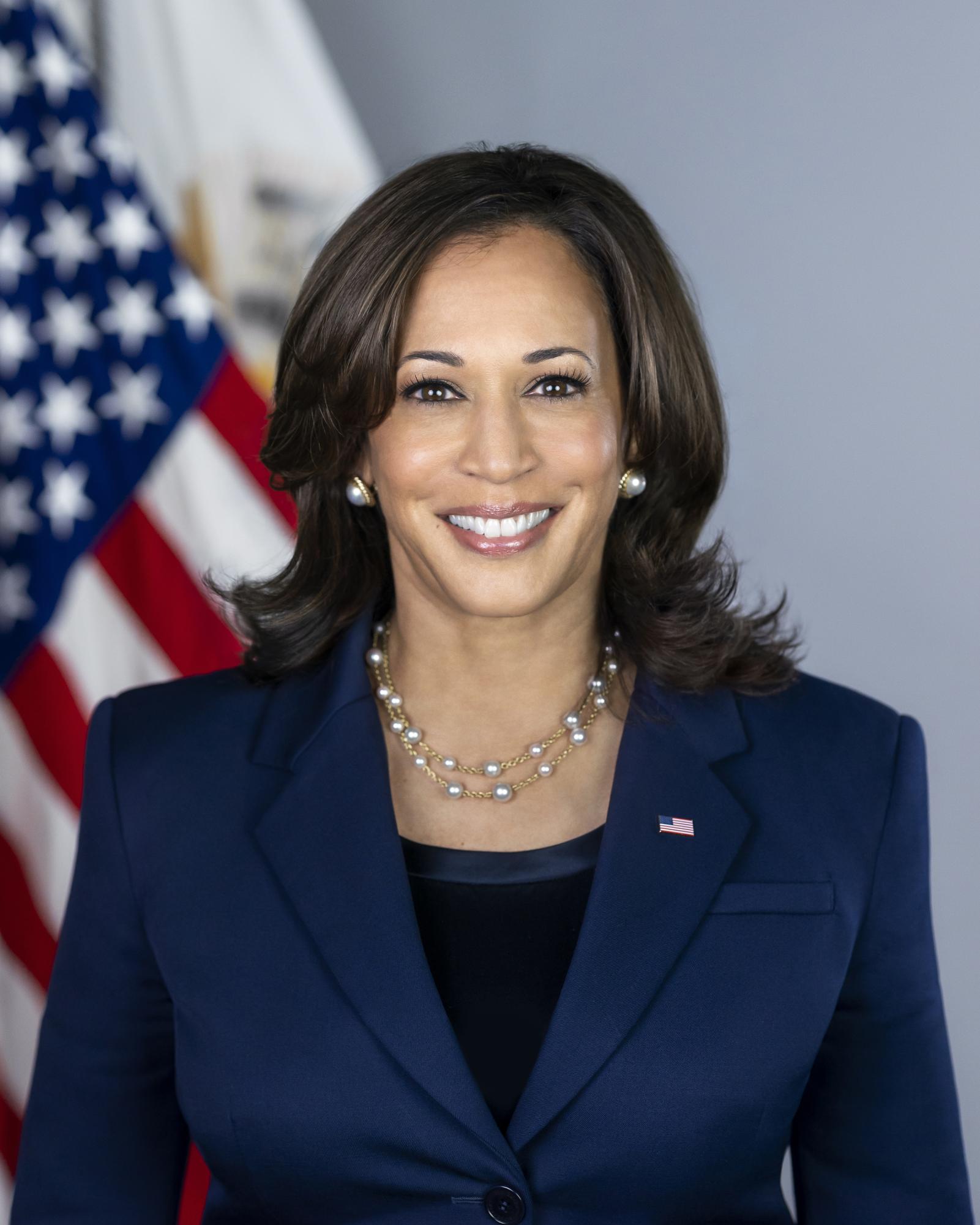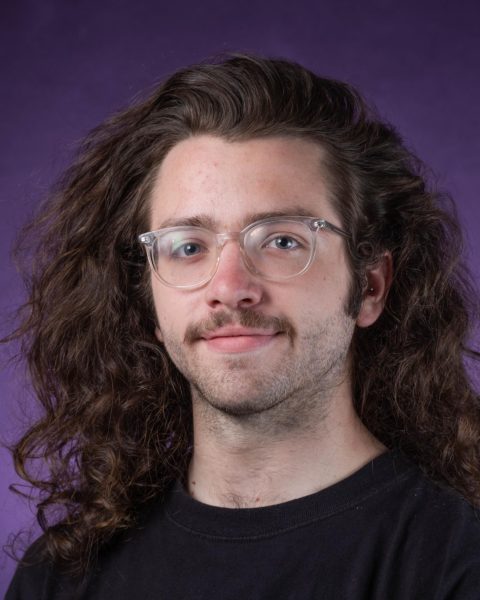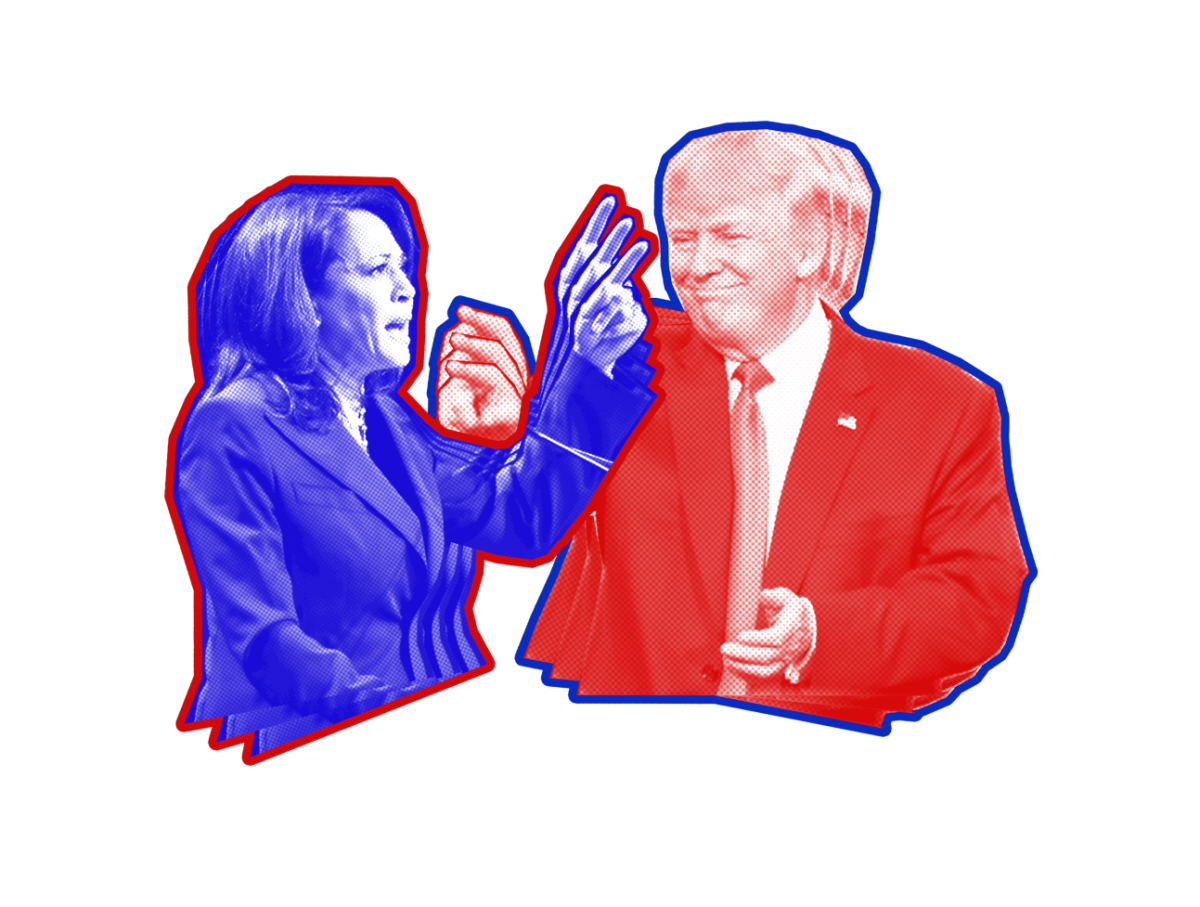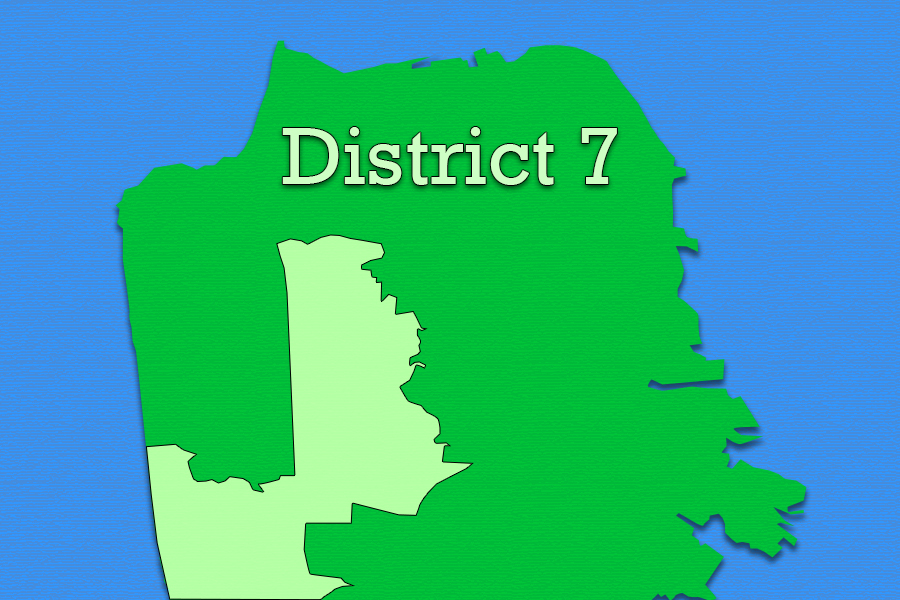A voter guide for the 2024 election
Harris |
Trump |
|
Reproductive Rights |
|
|
Immigration & Border Security |
|
|
Foreign Policy & War |
|
|
Healthcare |
|
|
Climate Change |
|
|
Did you know that District 7 includes San Francisco State University? Here are the three candidates running for District 7 Supervisor this November:
Myrna Melgar
- Job: District 7 Supervisor
- Age: 56
- Residency: Ingleside Terrace
- College: San Francisco State University, Excelsior College, Columbia University
- Languages Spoken: English, Spanish, French, Swedish
Matt Boschetto
- Job: Small Business Owner
- Age: 35
- Residency: District 7 resident
- College: Saint Mary’s College of California
- Languages Spoken: English
Stephen Martin-Pinto
- Job: US Marine Corps Reserves, firefighter
- Age: 46
- Residency: District 7 resident
- College: University of California, Davis
- Languages Spoken: English, Spanish, Russian, Georgian
Proposition A: Schools Improvement and Safety Bond
Summary: If passed, Prop A would improve the infrastructure of San Francisco’s public schools by allowing the school district to issue general obligation bonds up to $790 million. The money would be used for repairing building systems and working to comply with regulations and codes.
Proponent Argument: This improves the dwindling infrastructure of SF public schools that have had minimal maintenance and will keep kids safe.
Opponent Argument: This is potential for money mismanagement. The proposition is vague and does not elaborate enough on specific projects.
Supporters: San Francisco Building and Construction Trade Council.
Main Opponent: Libertarian Party of San Francisco.
Proposition B: Community Health and Medical Facilities, Street Safety, Public Spaces, and Shelter to Reduce Homelessness Bond
Summary: If passed, Prop B allows the city to issue general obligation bonds worth $390 million, which would be utilized toward the improvement of existing facilities including San Francisco General Hospital and Laguna Honda Hospital. This also allocates money to develop housing for homeless people and improve public spaces in downtown San Francisco.
Proponent Argument: This proposition will improve public safety, add housing for homeless people and enhance public hospitals.
Opponent Argument: Prior action has been taken before but there is no visible change.
Supporters: Mayor London Breed, Board President Aaron Peskin, Supervisor Connie Chan, Supervisor Dean Preston, Supervisor Matt Dorsey, Supervisor Joel Engardio, Supervisor Rafael Mandelman, Supervisor Myrna Melgar, Supervisor Hillary Ronen, Supervisor Ahsha Safaí, Supervisor Catherine Stefani, Supervisor Shamann Walton.
Main Opponent: The Briones Society.
Proposition C: Inspector General
Summary: If passed, Prop C will add a new Inspector General in the Controller’s Office. The person will have responsibilities including consulting the Ethics Commission, the City Attorney, the District Attorney and the Department of Human Resources to discuss matters like investigating potential cases of fraud and issuing subpoenas.
Proponent Argument: The creation of the position allows for more accountability of the SF government to make it more effective. No taxes will be needed, but funds will be allocated for the position.
Opponent Argument: Adding an unelected position to the Controller’s Office is a form of a “power grab” that gives one sole person “unchecked power.” The leaders who are already elected should be the ones held accountable for keeping the government running smoothly.
Supporters: Board President Aaron Peskin, Supervisor Connie Chan, Supervisor Dean Preston, Supervisor Catherine Stefani, Supervisor Ahsha Safai, Supervisor Shamann Walton, Supervisor Hillary Ronen, Supervisor Myrna Melgar, Supervisor Rafael Mandelman, Supervisor Matt Dorsey, Supervisor Joel Engardio.
Main Opponent: Larry S. Marso, Technology Executive.
Proposition D: City Commissions and Mayoral Authority
Summary: If passed, Prop D would create a task force to determine which commissions to merge and eliminate, reduce the number of city commissions, which is 135, to a maximum of 65, and make the mayor in charge of firing and hiring department heads.
Proponent Argument: Compared to other cities, San Francisco has an “absurd” number of city commissions. Many of these commissions are redundant and the unelected commission leaders have a lot of policy-changing power but many lack qualifications for the role.
Opponent Argument: Prop D reduces citizen engagement with the government and gives future mayors “virtually unchecked control.” Prop D reduces checks and balances in city government and puts the city’s future in the hands of a small group of people.
Supporters: Thomas Mazzucco, Former Police Commissioner; Abigail Porth, Former San Francisco Human Rights Commissioner; Jane Natoli, SF Airport Commissioner; Cyn Wang, SF Entertainment Commission Vice President and the San Francisco Democratic Party.
Opponents: Aaron Peskin, District 3 Supervisor and SF Mayoral Candidate; San Francisco Labor Council.
Proposition E: Creating a Task Force to Recommend Changing, Eliminating, or Combining City Commissions
Summary: If passed, Prop E would create a task force to assess every commission in San Francisco to recommend whether any of them should be changed, limited or completely eliminated to improve local governance. This would hold commissions accountable without having to eliminate many of them immediately. Aaron Peskin proposed this in opposition to Proposition D.
Proponent Argument: This prop would have public hearings, citizen input would be included, keeps oversight on police, give voters power, and keep checks and balances in the SF government.
Opponent Argument: This delays change by adding more steps to the process, reducing accountability from those in the government. Commissions overlap and waste resources. This fails to reduce unnecessary commissions.
Supporters: Coalition for San Francisco Neighborhoods, San Francisco League of Conservation Voters, San Francisco Labor Council, Coleman Advocates for Children & Youth, United Educators of San Francisco, Small Business Forward, San Francisco Tenants Union and the Affordable Housing Alliance.
Opponents: Larry S. Marso, Technology Executive; Cyn Wang, SF Entertainment Commission Vice President; Patrick Wolff, Families for San Francisco Founder and Lily Ho, Delta Chinatown Initiative Founder.
Proposition F: Police Staffing and Deferred Retirement
Summary: If passed, Prop F will give San Francisco Police Department staff who are eligible for retirement a financial incentive to keep working. This could postpone an officer’s retirement for up to five years.
Proponent Argument: Stop the SFPD from being short-staffed. Allows 911 response times to be quicker due to fewer staff leaving. Less spending on police by taxpayers due to fewer staff leaving. More staff and financial incentive allows for better police recruiting.
Opponent Argument: This allows some officers to be paid twice just because they are retiring. Has been ineffective in the past from 2008-2011 when there was no evidence of it retaining or recruiting more officers. Other public safety workers don’t receive these benefits. No more officers will join without recruitment, this will just pay the retiring ones twice.
Supporters: Moe Jamil, Deputy City Attorney and Candidate for District 3 Supervisor; Mayor London Breed, Sheriff Paul Miyamoto and Scotty Jacobs, Candidate for District 5 Supervisor.
Opponents: Supervisors Dean Preston, Hillary Ronen and Shamann Walton.
Proposition G: Rental Subsidies for Affordable Housing Developments Serving Low-Income Seniors, Families, and Persons with Disabilities
Summary: If passed, Proposition G would create the Affordable Housing Opportunity Fund for Seniors, Families and Persons with Disabilities. Beginning in 2026-27, the city would allocate at least $8.25 million per year to the fund with up to a 3% increase per year — depending on the city’s revenue — until 2046.
Currently, San Francisco provides loans to developers to acquire, build and renovate affordable housing for extremely low-income (ELI) households (<35% of the median San Francisco income.) These loans do not fully cover the difference between the operation costs and rent affordable to ELI households.
San Francisco does provide a limited number of rental subsidies for ELI seniors and households who have experienced homelessness, but there has not been a permanent funding source.
Proponent Argument: Prop G creates a dedicated fund to make hundreds of affordable households for some of the most vulnerable in our community.
Opponent Argument: According to Larry Marso, Prop G draws funds away from services like public safety, infrastructure and education and does not adequately address the root causes of housing issues in San Francisco.
Supporters: Unanimous support from the Board of Supervisors and the Mayor.
Main Opponent: Larry S. Marso, a technology executive, M&A advisor, and attorney.
Proposition H: Retirement Benefits for Firefighters
Summary: If approved, Prop H would lower the retirement age for firefighters who were hired after Jan. 7, 2012 from 58 to 55, which lowers the age to access their pension. Currently, firefighters hired before Jan. 7, 2012, could reach the maximum 90% of their final compensation for their pensions at age 55 and access them. Members hired on or after January 7, 2012, can access their pensions and reach that maximum three years later, at age 58.
Proponent Argument: According to Supervisor Catherine Stefani, cancer is the leading cause of occupational death for firefighters. By lowering the retirement age firefighters can access the maximum amount of their pension and lower their risk of cancer.
Opponent Argument: According to the Libertarian Party of San Francisco, firefighters are aware of the risks associated with their jobs. Firefighters hired after that date were aware of the new pension age requirements, which were implemented to help avoid fiscal mismanagement by the city.
Supporters: Board of Supervisors President Aaron Peskin, Supervisors Catherine Stefani, Connie Chan, Matt Dorsey, Joel Engardio, Myrna Melgar and Ahsha Safaí; San Francisco Firefighters Local 798 Secretary Adam Wood.
Main Opponent: The Libertarian Party of San Francisco.
Proposition I: Retirement Benefits for Nurses and 911 Operators
Summary: If passed, Prop I would introduce changes to pension plans for per diem nurses and 911 operators. The San Francisco Employees’ Retirement System (SFERS) provides pension plans to city employees depending on the job.
Per diem nurses are registered nurses employed on a temporary basis and since 1988 have not been covered by SFERS. If Prop I is passed, per diem nurses would be eligible to purchase service credit. Registered nurses who are or become members of SFERS and have worked an average of 32 hours or more per week for at least one year could purchase up to three years of service credit for time they previously worked as per diem nurses for the city before becoming SFERS members.
Under SFERS, 911 operators receive different plans from police officers and firefighters, despite them all being classified as first responders by the state of California, “would also move 911 dispatchers, supervisors and coordinators from the Miscellaneous Plans to the Miscellaneous Safety Plan for compensation those employees earn on and after January 4, 2025. As members of the Miscellaneous Safety Plan, these employees would be required to pay an increased amount into the pension plan and would receive increased pension benefits at retirement,” according to sf.gov.
Proponent argument: According to District 11 Supervisor Ahsha Safaí, Prop I would help reduce 911 and nursing shortages the city faces. Improving incentives will attract the highest quality dispatchers. Contract work for nurses costs taxpayers 14% more than city employees, and Prop I provides the opportunity for per diem nurses to join the ranks of full-time nurses as well as purchase service credit for the time they missed while working temporarily.
Opponent argument: According to the Libertarian Party of San Francisco (LPSF), The cost for workers buying back service hours could cost anywhere between $1.5-4.4 million, based on the uncertainty of how nurses will use this program. For 911 operators, LPSF argues, “The rationale seems to be that they’re all emergency services even if the risks faced in dealing with fires and guns aren’t quite the same as those involved in answering the phones.”
Supporters: Supervisors Ahsha Safaí, Myrna Melgar, Dean Preston, Shamann Walton, Connie Chan, Matt Dorsey, Aaron Peskin, Catherine Stefani, Rafael Mandelman, Joel Engardio and the Service Employees International Union Local 1021.
Main Opponent: The Libertarian Party of San Francisco.
Proposition J: Funding Programs Serving Children, Youth, and Families
Summary: If passed, Prop J would create an oversight body that will look at local government expenditures for programs that benefit children, youth and families. This initiative, called the “Our Children, Our Families” (OCOF), will monitor the Children and Youth Fund and the Public Education Enrichment Fund (PEEF) and prepare an annual report for the Mayor and the Board of Supervisors, who need to approve these expenditures as part of the budget process.
This proposition would require the School District to report on PEEF funds and spending to the OCOF Initiative each year. Additionally, future contributions to school districts from the PEEF will depend on the group’s review and approval of the school district’s proposal.
Proponent Argument: Prop J will coordinate and align city departments and SFSU to develop a unified Plan and outcomes framework to improve the outcomes for children and youth. It will also ensure budget accountability and efficiency.
Opponent Argument: No opponent argument was submitted.
Supporters: Supervisors Myrna Melgar, Hillary Ronen, Shamann Walton, Catherine Stefani, Ahsha Safaí, Matt Dorsey, Joel Engardio, Dean Preston and Rafael Mandelman.
Proposition K: Permanently Closing the Upper Great Highway to Private Vehicles to Establish a Public Open Recreation Space
Summary: If passed, Prop K would allow the city to utilize the Upper Great Highway as a public recreation space. This measure would close it to private motor vehicles seven days a week, with limited exceptions. It would require the city to seek any other approvals necessary to permanently close the Upper Great Highway to private motor vehicles within 180 days of approval.
The current pilot program would be in place until necessary approvals are met, or until the scheduled pilot program ends on Dec. 31, 2025.
Proponent Argument: The Great Upper Highway has lost its greatest utility, the southern end of it closing. Whether this measure loses or wins, commuters will have to turn inland. San Franciscans want an oceanfront park and also allows for more accessibility. Additionally, it will revitalize west side small businesses.
Opponent Argument: The city already has a compromise for private vehicles: weekdays opened and weekends and holidays closed, for several years. Closing this road would permanently push vehicles onto adjacent neighborhood streets which could potentially bring noise, traffic snarls and accidents.
Supporters: State Senator Scott Wiener, Supervisor Joel Engardio, Supervisor Myrna Melgar, Supervisor Ahsha Safaí, Supervisor Matt Dorsey, Supervisor Dean Preston, Supervisor Hillary Ronen and Supervisor Rafael Mandelman.
Main opponent: Richie Greenberg, former candidate for San Francisco mayor.
Proposition L: Additional Business Tax on Transportation Network Companies and Autonomous Vehicle Businesses to Fund Public Transportation
Summary: If passed, Prop L would create a new gross receipts tax on transportation network companies and autonomous vehicle businesses grossing above $500,000. The funds collected would be used to preserve, maintain or increase Muni public transportation services.
- 1% on taxable gross receipts between $500,000.01 and $1,000,000 (one million dollars)
- 2.5% on taxable gross receipts between $1,000,000.01 and $2,500,000 (two-and-a-half million dollars)
- 3.5% on taxable gross receipts between $2,500,000.01 and $25,000,000 (twenty-five thousand dollars)
- 4.5% on taxable gross receipts over $25,000,000 (twenty-five thousand dollars)
Proponent Argument: Muni is facing severe cuts due to the end of emergency federal funding. This proposition would protect up to a dozen bus lines from being cut. Families, seniors and workers need reliable transportation.
Opposing Argument: This proposition makes Muni’s problems harder to solve and burdens SF’s vulnerable populations.
Supporters: State Senator Scott Wiener; Supervisors Connie Chan, Joel Engardio, Dean Preston, Matt Dorsey, Myrna Melgar, Hillary Ronen, Ahsha Safaí.
Opponents: Golden Gate Restaurant Association, TogetherSF Action, California Nightlife Association.
Proposition M: Changes to Business Taxes
Summary: If passed, Prop M would make several changes to San Francisco’s gross receipt taxes. According to SFGov, The proposal would reduce the number of business types from 14 to 7, exempt most small businesses with gross receipts up to $5 million (increased by inflation), calculate San Francisco gross receipts based more on sales and less on payroll expenses (depending on the type of business), and change rates to between 0.1% and 3.716%.
The proposal would also apply the homelessness gross receipts tax on business activities with San Francisco gross receipts over $25 million, at rates between 0.162% and 1.64%, and would modify how the city calculates the overpaid executive gross receipts tax, determine who pays that tax, and set the rates between 0.02% and 0.129%.
Additionally, the proposal would adjust business registration fees to between $55 and $60,000 (increased by inflation), adjust the administrative office tax rates for certain large businesses to range from 2.97% to 3.694%, and adjust the business registration fees for these businesses to between $500 and $35,000 (increased by inflation), as well as make administrative changes to the city’s business taxes.
The homelessness gross receipt tax would proceed with funding homelessness prevention and services for those who are experiencing homelessness. This measure requires 50%+1 affirmative votes to pass.
Proponent Argument: According to Laurie Thomas of the Golden Gate Restaurant Association, Proposition M will offer crucial tax relief to assist over 2,700 small businesses and reduce business license fees for businesses such as restaurants, hotels, art venues and neighborhood stores. It will also simplify the current tax system, lower taxes, and create an improved environment for future investments and continued growth.
Opponent Argument: According to technology executive, M&A advisor, and attorney Larry S. Marso, Proposition M will institute tax rates that may slightly help small businesses, and will significantly increase rates of mid-sized to large employee companies.
Supporters: Laurie Thomas, Golden Gate Restaurant Association, Masood Samereie, President of the San Francisco Council of District Merchants Associations. Rodney Fong, Chamber of Commerce, Alex Bastian, Hotel Council of San Francisco, Larry Mazzola Jr, San Francisco Building and Construction Trades Council, and Mary Jung, Former San Francisco Democratic Party Chair.
Main Opponent: Larry S. Marso, a technology executive, M&A advisor, and attorney.
Proposition N: First Responder Student Loan and Training Reimbursement Fund
Summary: If passed, Prop N would create a fund committed to reimbursing eligible employees for student loans, as well as job-related educational and training expenses up to $25,000. Eligible members would include members of the police, fire and sheriff’s departments, paramedics, registered nurses, and 911 dispatchers. Certain supervisors or coordinators who meet requirements would also be eligible to receive payments from the fund. The payments would begin once the fund has reached one million dollars. The Mayor and the Board can also decide to place city funds into the fund, but would not be required to do so. Private donations could also be received for the fund. This measure requires 50% +1 affirmative votes to pass.
Proponent Argument: Prop N would make it easier to recruit and retain first responders, as well as allow first responders to better support themselves and their families, and would help mitigate the safety staff shortages.
Opponent Argument: Prop N does not address all the underlying issues that contribute to the student-loan debt issues such as: rising educational costs and insufficient compensation. Proposition N also sets a worrying precedent of using taxpayer dollars to pay off personal debts. Other city employees could also push for these same benefits.
Supporters: Supervisor Ahsha Safaí, Supervisor Shamann Walton, Supervisor Matt Dorsey, Supervisor Joel Engardio, Supervisor Connie Chan, Supervisor Catherine Stefani, Sheriff Paul Miyamoto, San Francisco Police Officers Association, and the San Francisco Deputy Sheriffs’ Association.
Main Opponent: Larry S. Marso, a technology executive, M&A advisor, and attorney.
Proposition O: Supporting Reproductive Rights
Summary: Prop O would create a fund that accepts grants and gifts to support reproductive rights and services, and require the Department of Public Health (DPH) to maintain a website that lists facilities that provide abortions or emergency contraception or offer referrals for these services, and list limited services pregnancy centers in San Francisco.
Prop O would authorize DPH to post signs outside limited services pregnancy centers to inform the public that those facilities do not provide abortions, emergency contraception, or offer referrals for these services and indicate where to obtain these services. It would also limit city-funded facilities that provide abortions from requiring providers to have additional medical qualifications beyond those required by law and it would prohibit city officials from providing information to law enforcement agencies of other states or the federal government concerning a person’s use or possession of some reproductive services. It would modify the city’s zoning law so that reproductive health clinics may operate in more areas of San Francisco, including all floors in nonresidential districts and corner lots in residential districts.
Proponent Argument: Prop O would guarantee all residents, regardless of income, access to the necessary care, by establishing the continued fund of reproductive health care services. It would also serve as protection to healthcare providers from legal and political attacks and would ensure that education on reproductive health remains factual, unbiased and accessible to all.
Opponent Argument: Prop O would require signs to be placed outside pro-life medical clinics in San Francisco advertising abortion centers. It would also allow new companies to purchase and operate in any property zoned for non-residential use, as long as they are an abortion business.
Main Supporter: Mayor London Breed.
Opponents: Melanie Salazar, Executive Director of Pro-Life San Francisco.
*All information was sourced through sf.gov.
Harris |
Trump |
|
Los derechos reproductivos |
|
Mientras Trump ha dicho en el pasado que apoya una prohibición a nivel nacional, recientemente ha afirmado que apoya dejar la decisión a los estados. |
La inmigración y la seguridad de la frontera |
|
|
Política Exterior y la guerra |
|
|
Cuidado de la salud |
|
|
Calentamiento global |
|
|
¿Sabías que el Distrito 7 incluye la Universidad Estatal de San Francisco? Aquí están los tres candidatos que se postulan para Supervisor del Distrito 7 este noviembre:
Myrna Melgar
- Trabajo: Supervisora del Distrito 7
- Edad: 56
- Residencia: Ingleside Terrace
- Educación: Universidad Estatal de San Francisco, Colegio Excelsior, Universidad de Columbia
- Idiomas hablados: inglés, español, francés, sueco
Matt Boschetto
- Trabajo: Dueño de un negocio local
- Edad: 35
- Residencia: Residente del Distrito 7
- Educación: Colegio de California Saint Mary’s
- Idiomas hablados: inglés
Stephen Martin-Pinto
- Trabajo: Reservas del Cuerpo de Marines de EE.UU., bombero
- Edad: 46
- Residencia: Residente del Distrito 7
- Educación: Universidad de California Davis
- Idiomas hablados: inglés, español, ruso, georgiano
En las elecciones locales de San Francisco, hay quince propuestas en la papeleta. Aquí se explican cinco propuestas que podrían impactar a estudiantes.
Propuesta B: Instalaciones médicas de salud comunitaria, seguridad en las calles, espacios públicos y refugio para reducir los bonos para personas sin hogar
Esta propuesta es una medida de bonos que permitiría a la ciudad pedir prestado hasta $390 millones mediante la emisión de bonos de obligación general, lo que se usaría para ayudar y fortalecer la infraestructura local.
Algunos de los proyectos más notables incluyen la mejoración al Hospital General y Centro de Trauma Zuckerberg San Francisco, mejoras en la seguridad de peatones y calles, y sitios de refugio para familias sin hogar. Con la implementación de esta propuesta viene una comisión para poder repasar como la ciudad usaría el dinero de los bonos.
Un voto “SÍ” significa: Daría acceso a la ciudad a $390 millones en bonos para poder financiar los proyectos de infraestructura.
Un voto “NO” significa: La ciudad no tendría acceso a los bonos.
Esta medida requiere el 66.66% votos afirmativos para aprobarse, a menos que se pase la propuesta estatal 5, en ese caso necesitaría 55%.
Propuesta G: Subsidios de alquiler para desarrollos de viviendas accesibles para personas mayores, familias y personas con discapacidades de bajo ingreso
La propuesta es una enmienda al fuero que crearía un Fondo de Oportunidades de Vivienda Asequible para Personas Mayores, Familias y Personas con Discapacidades (Fondo).
Según la Propuesta G, cada año la ciudad estaría obligada a contribuir al Fondo:
A partir del año fiscal 2026-27, al menos $8,25 millones al año; y hasta el año fiscal 2045-46, al menos el monto del año anterior, ajustado hasta en un 3 % en función de los ingresos de la ciudad.
Si, en cualquier año, el déficit presupuestario proyectado de la ciudad es de $250 millones o más, la ciudad puede reducir su contribución al Fondo, siempre que la ciudad contribuya al menos $4 millones en 2026-27 y al menos $8,25 millones en cada año posterior.
Según la Propuesta G, la Alcaldía de VIvienda y Desarrollo Comunitario (MOHCD, por sus siglas en inglés) administraría el Fondo desembolsando dinero a los propietarios de ciertos desarrollos de viviendas asequibles nuevos y existentes en San Francisco para subsidiar el alquiler de hogares compuestos por personas mayores, familias o personas con discapacidades con ingresos de hasta el 35% del AMI (Ingreso Medio del Área, por sus siglas en inglés.) Los fondos subsidiarán la diferencia entre el monto que estos inquilinos pueden pagar y los alquileres que el propietario cobraría de otra manera. El Fondo finalizará el 31 de diciembre de 2046, a menos que los votantes lo autoricen.
Un voto “SÍ” significa: Enmendar el fuero de la ciudad para asignar al menos $8.25 millones al año para pagar los subsidios de alquiler para desarrollos de viviendas asequibles que atiendan a hogares de personas mayores, familias y personas con discapacidades. También cambiaría la asignación de impuestos para crear más viviendas asequibles.
Un voto “NO” significa: Quiere que la ciudad haga estos cambios.
La medida requiere 50% + 1 votos afirmativos para aprobarse.
Propuesta K: Cerrar permanentemente el Great Highway a vehículos motorizados privados para establecer un espacio público de recreación abierto
Durante la pandemia de COVID-19, la ciudad cerró ciertas vías públicas a vehículos motorizados privados, reservando estas vías como lugares abiertos públicos para recreación. Las vías cerradas incluyen el Great Highway entre Lincoln Way y Sloat Boulevard, al lado de la playa del océano.
Cambios en uso a la gran carretera requieren enmiendas al plan general y agrupaciones bajo la ley dé costas dé California. La recreación y comisión de parques son jurisdicción entre la mayoría de parques públicos y otras facilidades recreacionales en San Francisco, incluyendo el Great Highway. Bajo la dirección dé la comisión, el manejador general dé los parques y recreación supervisa el uso de esas facilidades recreación.
Artículo K es una ordenanza que permitiría a la ciudad usar el Great Highway para el uso público recreacional, cerrando permanente a los vehículos motores privados siete días a la semana, con excepciones limitadas. Permitiría el libre acceso diario del Great Highway a vehículos autorizados como, vehículos de emergencia, vehículos oficiales del gobierno local, autobuses de transporte público dentro del parque y vehículos similares.
Un voto “SÍ” significa: Sí quiere que la ciudad utilice el Great Highway como recreación pública abierta, cerrándose permanentemente a los vehículos motorizados privados los siete días a la semana, con excepciones limitadas.
Un voto “NO” significa: Rechazar que la ciudad haga estos cambios.
La medida requiere 50% + 1 votos afirmativos para aprobarse.
Propuesta L: Impuesto adicional a las empresas de redes de transporte y vehículos autónomos para financiar el transporte público
La propuesta tiene que ver con la pregunta de: ¿Debería la ciudad imponer un impuesto entre el 1% y el 4,5% en las empresas de redes de transporte y a las empresas de vehículos autónomos que prestan servicios de pasajeros empezando el 1 de enero de 2025?
Un voto “SÍ” significa: La ciudad recibirá la financiación necesaria para que el SFMTA preserve el servicio de transporte mientras la agencia busca fuentes de financiamiento más sustantivas. También protegerá alrededor de diez líneas del autobús que tendrán que cerrarse sin el dinero del impuesto. Tiene la posibilidad de desincentivar los viajes en automóvil, lo que reducirá la congestión en las calles de la ciudad.
Un voto “NO” significa: No estás de acuerdo con la propuesta. Tiene la posibilidad de subir el precio de transportación con apps como Lyft, Uber y Waymo. La propuesta será permanente. Si algún día necesitan revertir los impuestos, otra propuesta sería necesaria para disolver la propuesta. La ciudad tiene un déficit del presupuesto de 200 millones. Esta propuesta alocara 25 millones al transporte público. La propuesta no daría el dinero necesario para cambios a largo plazo.
La medida requiere 50% + 1 votos afirmativos para aprobarse.
Propuesta O: Apoyo a los derechos reproductivos
La propuesta declararía la ciudad como un lugar seguro para las personas que buscan atención reproductiva, incluidos los abortos.
Un voto de “SÍ” significa: Un apoyo para tener derechos reproductivos para ciudadanos en San Francisco. Si se aprueba, también crearía un Fondo de Libertad Reproductiva que acepte subvenciones y donaciones para apoyar los derechos y servicios reproductivos. También requeriría que el Departamento de Salud Público (DPH, por sus siglas en inglés) mantenga un sitio web público que incluya una lista de las instalaciones que brindan abortos o anticoncepción de emergencia u ofrecen referencias para estos servicios, y que incluya una lista de centros de embarazo con servicios limitados en San Francisco.
Un voto de “NO” significa: Estar en contra de libertades de tener aborto legal y proteciones de este tipo de atención medica.
La medida requiere 50% + 1 votos afirmativos para aprobarse.
*Toda la información se obtuvo a través de sf.gov.


















